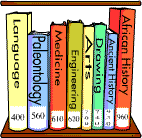The Cult of the Dictionary Readers
Created | Updated Jun 6, 2007
Welcome to our Abode
Eccentrics, etymologists, linguists, and the rest of the language loving population may all often find themselves undertaking this task:
Reading the Dictionary

Loved by many, today's modern dictionary is now a source for the meanings of words. Many more in depth editions also cover the orgins of these wonderful specimens. And there are many beings enamored with this concept, who often turn to the dictionary as a source of light reading material and entertainment.
The dictionary is mainly used by those seeking to increase knowledge, vocabulary, or proficientcy in spelling. Here at the Cult, we turn to the dictionary as a good friend, seeking to increase our understanding of our language.
Who we are
- Jen
- Chauncey
- (- 2+0+8+4-4)*7=42puzzler
- JustAnotherNumber
- Egon
- Demon Drawer
- Renee
- Pantherlady
- Snazoo
- Deus Ex Machina
- Happysuggs
- Semisomna
- Farlander
- HarpoNotMarx
New members are always welcome to this cult. Just leave a message.
Some words to know
This list can be added to by posting in a conversation with an appropriate subject line. At some point I might get around to adding definitions, but for now consider this a list of recommended reading material. So pull out that dictionary and READ!
- etymology
- linguistics
- abode
- torpid
- solipsistic
- circumvagination
- callypgian
- sesquipedalian1
- floccinaucinihilipilification2
Word of the Week
Demon Drawer has revived the popular Word of the Day feature with a column in the Post called Word of the Week. A great source of some very interesting words. So, anyone interested in zymurgy? Or do you prefer to discuss repairing aglets? All these words, and more, can be yours by visiting the Word of the Day Archive. But to expand beyond that listing you'll have to check out the Post.Recommended Reading
Well, for starters, try your dictionary.
And then after that, if you're interested in etymology, I personally recommend Bill Bryson's book "The Mother Tongue: English and how it got that way". It also has lovely bits on different types of wordplay, like puns and anagrams, and other linguistic oddities, like the Spoonerism.
